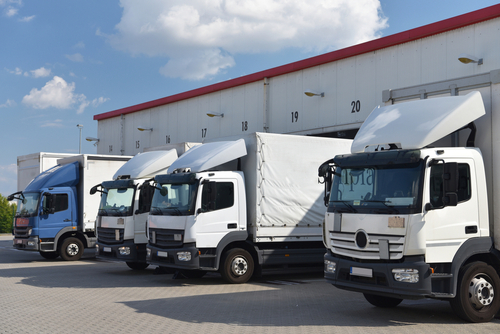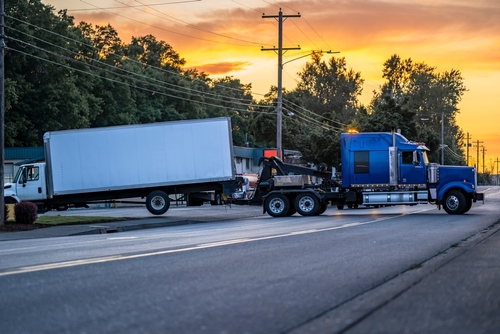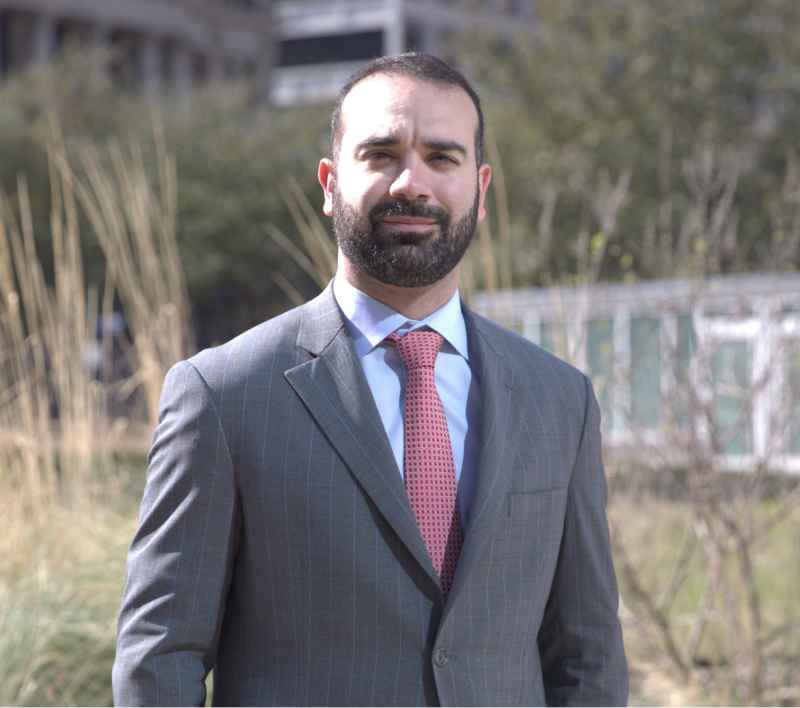You never expect a routine drive to collide with a rig the size of a house. But when it happens, the chaos that follows often comes with more than just physical pain. Questions spiral – especially about who's responsible. When the truck is owned by a company, the situation shifts quickly. It's not just about one driver's mistake anymore. You're facing a corporate structure built to protect its bottom line.
You might think the trucker is the sole culprit, but that's rarely the full picture. Trucking companies operate on tight margins, intense deadlines, and systems that often put pressure on drivers to cut corners. If those systems contributed to your wreck, a Houston truck accident lawyer will uncover where the liability lies – and it may run deeper than you expect. An attorney is ready to tell you more.
Negligent Hiring Turns Into a Highway Hazard

Every company is responsible for deciding who gets behind the wheel of their massive machines. If they skip background checks, ignore previous driving violations, or push someone through training too quickly, you're not just dealing with an individual error – you're dealing with a breakdown in corporate judgment.
A legal professional will look at the hiring timeline, certification records, and internal safety memos. Hire a Truck Accident Lawyer who can identify breakdowns in company protocols and push for accountability. If the company had red flags and hired the driver anyway, that's a red mark against them. Some trucking companies keep drivers on the payroll even after repeated safety violations, hoping nobody catches on. Once you dig into their decision-making process, it becomes clear whether the crash started long before the engine ever fired up.
Maintenance Gets Ignored
Regular maintenance keeps these machines roadworthy, but some companies treat inspections like a formality. Brake failures, tire blowouts, steering defects – these things don't just happen. They come from skipped inspections and postponed repairs.
You wouldn't skip oil changes for your car and expect it to run safely. So why should a company hauling 40 tons be allowed to dodge those responsibilities? A truck accident attorney will request maintenance logs, inspection certifications, and work orders. If records show missing entries or repeated issues that were never addressed, the company won't be able to distance itself from liability.
Some carriers even outsource their fleet management and then try to claim it wasn't their problem. The Truck Accident Claim Process often reveals the truth through maintenance contracts and service agreements. However, that argument falls apart quickly when contracts reveal they retained control over repairs and inspections.
Violations of Hours-of-Service Rules
Federal hours-of-service regulations aren't optional. Drivers are supposed to follow strict limits on how long they can be on the road without rest. But when freight deadlines stack up, some companies start nudging drivers to fudge the numbers. That pressure may be subtle – a last-minute call or a promised bonus – but it creates a culture where unsafe driving becomes the norm.
A truck accident lawyer will compare delivery schedules, GPS records, and telematics data. If the company's expectations made legal compliance impossible, then it bears responsibility. No one should be rewarded for endangering others just to shave a few hours off a cross-country haul.
Some companies even promote unofficial rules. "You're expected to do whatever it takes." That kind of language can come back to haunt them in court. It shows intent and disregard for public safety. You deserve better than to be a casualty of corporate pressure.
Defective Equipment Contributes to the Accident
Equipment failure may appear to be an isolated incident. But in commercial trucking, it's often the result of a deeper pattern – one tied directly to cost-cutting. Some companies knowingly approve the use of faulty brake systems, mismatched tires, outdated safety sensors, or worn coupling components. When these defective parts become standard, it's no longer about isolated negligence. It's a strategy with consequences.
A truck accident attorney will dig into procurement records and vendor contracts. If management approved discount equipment or overlooked repeated warnings from mechanics, liability shifts. Manufacturers can be part of the chain, but they're not the shield these companies hope they'll be. When a business makes the final call on what goes into its vehicles, it owns the outcome of that decision.
You might not see the defect until it causes a disaster, but someone along the supply line likely did. That someone can be a maintenance supervisor, a procurement manager, or an executive chasing quarterly savings. What to Do After a Truck Accident includes identifying whether those individuals ignored safety warnings or failed to act. When internal memos reveal that the risk was known and tolerated, the case becomes more than just a collision. It becomes a story of corporate indifference that finally meets the real world.
Cost-Saving Can Trigger Chaos
Some carriers implement cost-cutting measures that extend to safety operations. Skipping system upgrades, avoiding expensive part replacements, or greenlighting short-term fixes over permanent solutions – these are choices that create risk. You don't need to guess whether management knew. A lawyer will piece it together through maintenance logs, parts invoices, and performance alerts.
If the company ignored defect reports or delayed essential upgrades across its fleet, those actions will matter. The courtroom doesn't care whether the policy came from incompetence or intention.
A Lack of Safe Cargo Management
It's not just what the truck carries – it's how it's carried. A balanced load keeps the rig stable, while a poorly secured one can shift weight mid-turn, triggering a rollover or jackknife. That instability doesn't always come from driver error. It can stem from cargo that was loaded in haste, packed without proper weight distribution, or never secured at all.
A truck accident attorney will request weigh station reports and delivery schedules. If the cargo weight was too high or the balance was off, responsibility often points back to whoever loaded it. Some carriers try to distance themselves by outsourcing that role. But if they issued instructions or retained authority over how it was done, they're in the accountability chain.
Delegating Doesn't Erase Responsibility
Trucking companies sometimes rely on subcontractors to handle freight. That move may work on paper, but it won't hold up under scrutiny if they remained involved in directing the loading process. An attorney will examine internal emails and cargo directives. If the company dictated how or when the truck was packed, it can't claim detachment. Subcontracting doesn't erase responsibility – it spreads it.
The Company Uses Independent Contractors as Shields

A favorite move in the trucking world is trying to shift blame by calling the driver an "independent contractor." Some companies structure their operations this way to avoid liability. But legal labels don't always hold up under scrutiny.
If the company controlled the driver's schedule, dictated the routes, or required specific equipment, then that driver may legally qualify as an employee. An attorney will analyze dispatch instructions, pay structures, and training protocols. If the company exercised control over daily operations, courts often reject the independent contractor defense.
Technology Reveals Dangerous Corporate Decisions
Black box data, telematics, and onboard cameras aren't just for driver monitoring. These tools can reveal how a company manages risk or ignores it. Did they deactivate safety alerts? Did they delay repairs flagged by onboard diagnostics? Did they ignore sudden braking patterns or lane deviation warnings?
A Houston truck accident lawyer will analyze the digital footprint left behind by every mile driven. That data may show a pattern of risky behavior that the company failed to address. Some carriers implement safety tech just to satisfy insurers but never act on the alerts. That kind of negligence builds up silently until someone gets hurt.
Once it becomes clear the company had data showing repeated danger and did nothing to stop it, its legal position gets very thin. You're not dealing with ignorance. You're dealing with a choice to let risk grow unchecked.
Policy Conflicts Cause Real-World Crashes
Some trucking companies design internal policies that contradict public safety standards. They might require delivery within impossible time windows or penalize drivers for taking breaks. These policies create tension between safety and job security. Unfortunately, the latter usually wins.
If you were hit by a driver who was racing against a deadline or skipping rest breaks to avoid fines, an attorney will look at those internal policies. That evidence tells a story of corporate pressure. It shows that the company's rules weren't just unfair – they were dangerous.
A carrier doesn't get to hide behind a clean public policy manual when its private enforcement practices encourage reckless driving. If dispatch logs, pay structures, or internal emails show conflicting priorities, the company's liability becomes hard to deny. Can a Truck Accident Lawyer prove this kind of internal contradiction? Yes – by collecting the right documents and asking the right questions, your attorney can build a case that exposes how company policy and practice don’t align.
Safety Programs Are Just PR
It's common for large carriers to tout their safety programs. Websites boast about compliance, training, and accountability. But behind the scenes, the reality often tells a different story. Some programs exist only to deflect blame, not to prevent harm.
A Houston truck accident lawyer will test the gap between marketing and management. Were safety complaints followed up? Were risky drivers pulled off the road? Did training happen on paper but not in practice?
Public-facing commitments are meaningless if the company fails to act when it matters. That disconnect is a calculated decision to prioritize image over impact.
The Company's Investigation Falls Short
After a crash, trucking companies often launch internal investigations. They document the incident, collect statements, and store vehicle data. But sometimes, these investigations aren't about truth – they're about shielding the company from liability.
If records were altered, footage disappeared, or employee statements changed after management got involved, that raises serious questions. A Houston truck accident lawyer will request the full timeline and match it against public reports and third-party evidence. If inconsistencies appear, it may reveal a cover-up.
You shouldn't have to fight for facts. When the company handles investigations like a PR exercise, its credibility evaporates fast.
The Truck Wasn't Supposed to Be There
Some companies allow their vehicles to operate outside approved routes or beyond hours. If the crash happened while the truck was on unauthorized business or being used personally by a driver during restricted hours, that complicates matters.
But the company may still be liable if it failed to control access to its equipment or didn't discipline off-hours use. If it knew drivers were bending the rules and let it slide, it becomes part of the problem.
An attorney will reconstruct the trip, examine delivery logs, and compare driver schedules. If the company fostered a look-the-other-way culture, that will matter in your case. How an Attorney Can Help in these situations often comes down to digging deeper than surface-level reports and identifying the patterns that point to systemic failure, not just individual mistakes.
Silence Can Speak Volumes
In some cases, the most telling evidence isn't what the company says – it's what it refuses to provide. Delayed responses, missing records, and dodged questions point to a deeper issue. Silence becomes its own admission when a company withholds information it should have preserved.
A Houston truck accident lawyer will press for records, apply pressure through legal channels, and expose any efforts to hide evidence. If the company dodges basic discovery requests, that's a clue the liability chain starts close to home.
Your case deserves answers, not evasions. When a company tries to stonewall, it usually means there's something it doesn't want revealed.
How a Legal Professional Can Help When You're Going Up Against an Industry Giant
Some of the biggest names in trucking have the largest legal departments, but that doesn't make them untouchable. Their size often becomes part of the story. Large operations mean more trucks, more pressure, and a higher chance of system-wide safety failures.
An attorney will treat the company like any other party but with closer scrutiny. If systemic problems show up across multiple crash reports or court filings, your case won't stand alone. It becomes part of a pattern the courts recognize.
Your injury matters. You're not just a statistic in a corporate spreadsheet. A truck accident lawyer will push past the corporate gloss and get to the part that matters – accountability.
A Trucking Company Attorney Will Ask the Hard Questions

Determining liability doesn't end with the crash report. It begins with the questions no one else asks. Who made the decisions that led to the crash? Who approved the risky policies? Who ignored the warnings? Those answers don't always point to the person behind the wheel.
Your attorney will dig into those layers. Liability might rest with management, safety supervisors, or executives who pushed for faster deliveries at any cost. A Houston personal injury lawyer doesn't just pursue compensation – they pursue the truth behind your injuries.
You didn't ask to become part of a legal investigation. But if your case helps expose how a company operates, you're doing more than recovering – you're revealing how preventable these crashes truly are. Contact a skilled truck accident attorney for a free consultation and find out how they can help you pursue compensation.